
Find Help
More Items From Ergsy search
-

What is the principle of 'like cures like'?
Relevance: 100%
-

What is the new treatment for hepatitis C like?
Relevance: 34%
-

What do nits look like?
Relevance: 33%
-

Are online banks like Monzo and Revolut regulated?
Relevance: 30%
-

Are online banks like Monzo and Revolut safe?
Relevance: 29%
-

Is there a season when mosquito-borne diseases are more likely in the UK?
Relevance: 29%
-

What are women's prisons like in the UK?
Relevance: 29%
-

What impact could a variant like Stratus have if real?
Relevance: 28%
-

Is there concern about new hypothetical variants like Nimbus and Stratus?
Relevance: 28%
-

Is there a way to cure a cold quickly?
Relevance: 28%
-

Are seed oils like sunflower oil bad for health?
Relevance: 27%
-
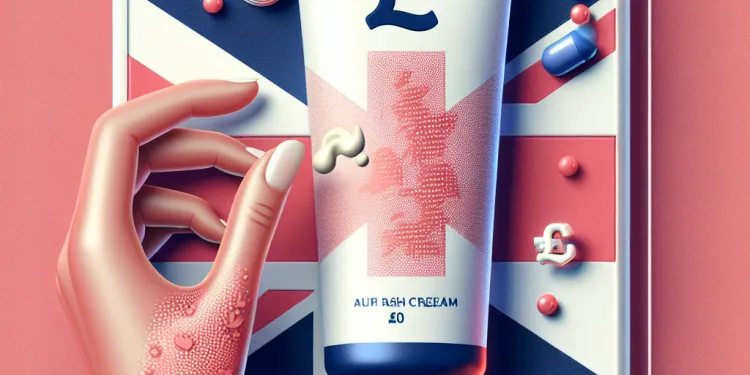
Is there a cure for eczema?
Relevance: 27%
-
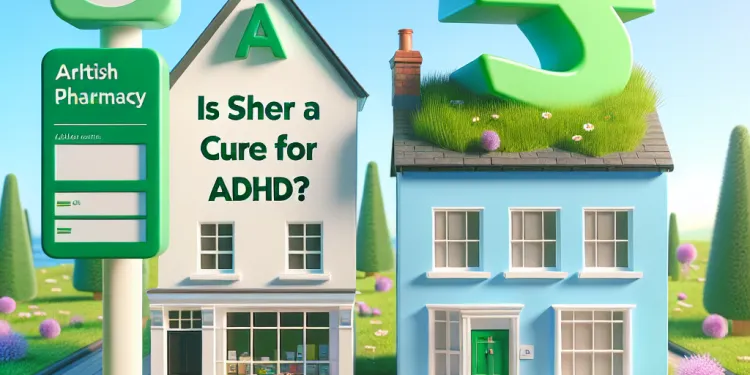
Is there a cure for ADHD?
Relevance: 27%
-

Do I need a TV license if I only watch streaming services like Netflix?
Relevance: 27%
-

Are boys or girls more likely to be targets of grooming?
Relevance: 26%
-

What is the work environment like at the National Trust?
Relevance: 26%
-
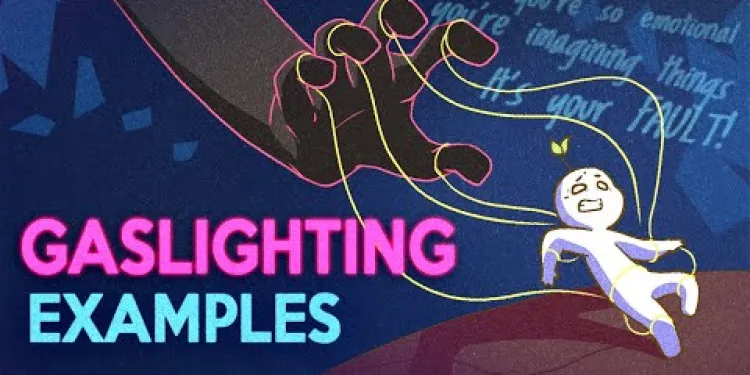
10 Examples of What Gaslighting Sounds Like
Relevance: 26%
-

What is it like having Prostate Radiotherapy treatment?
Relevance: 26%
-

Is there a cure for psoriasis?
Relevance: 26%
-

Is there a cure for dementia?
Relevance: 25%
-

What are are Crypto Currencies like Bitcoin and XRP?
Relevance: 25%
-

Can autism be cured?
Relevance: 25%
-

Can tinnitus be cured?
Relevance: 25%
-

Is there a cure for motor neurone disease?
Relevance: 25%
-

Can asthma be cured?
Relevance: 25%
-

Can sleep apnea be cured?
Relevance: 25%
-

What it's like to have a baby with Edwards' syndrome - My Story - Chloe and Penelope | NHS
Relevance: 24%
-

What is the recovery process like after a C-section?
Relevance: 24%
-
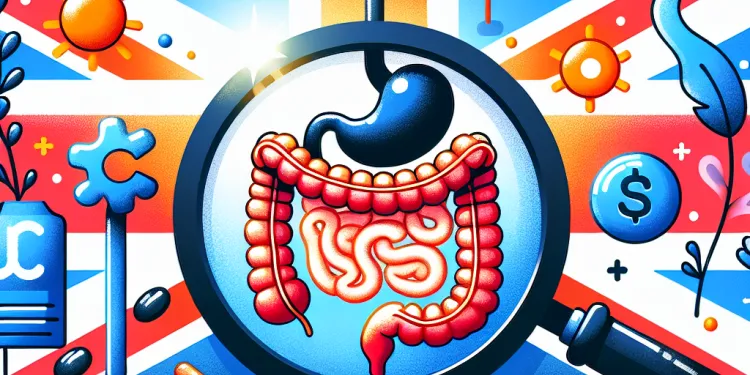
Is there a cure for Crohn's disease?
Relevance: 24%
-

Is it true that sunbeds can help treat skin conditions like psoriasis?
Relevance: 24%
-

Can Huntington's disease be cured?
Relevance: 23%
-

Is there a cure for Nipah Virus?
Relevance: 23%
-

Is there a cure for nut allergies?
Relevance: 23%
-
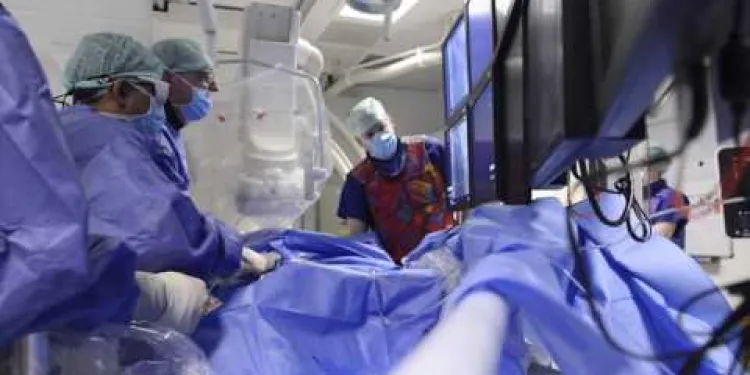
What is it like having a Transcutaneous Aortic Valve Implant (TAVI)?
Relevance: 23%
-

Is there a cure for cold sores?
Relevance: 23%
-

Has the US ever left an international organization like WHO before?
Relevance: 22%
-

What assets would a UK wealth tax likely target?
Relevance: 22%
-
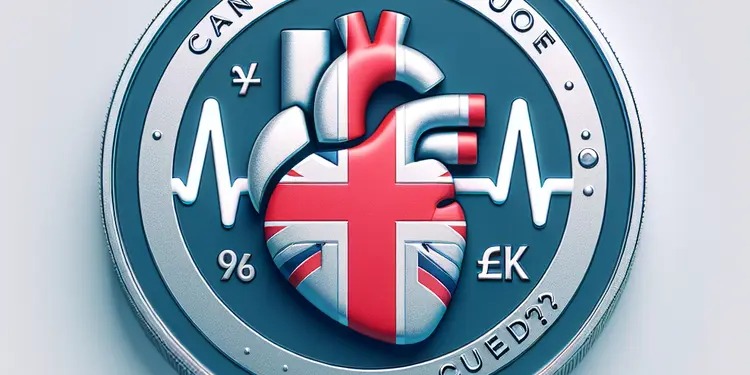
Can heart failure be cured?
Relevance: 22%
-

Are there any health benefits to consuming seed oils like sunflower oil?
Relevance: 22%
-
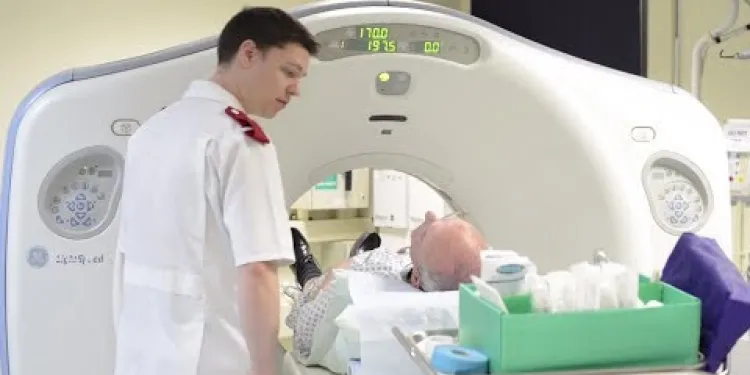
Having a CT scan in Hospital - What's it like having a CT scan at Bedford Hospital?
Relevance: 22%
What is the Principle of 'Like Cures Like'?
The principle of 'like cures like' is a foundational concept in homeopathy, a system of alternative medicine developed in the late 18th century by Samuel Hahnemann. This principle posits that a substance that causes symptoms of a disease in a healthy person can be used, in diluted form, to treat similar symptoms in a sick person. It is akin to the idea of vaccination but differs significantly in its application and scientific basis.
Origins of the Principle
The principle of 'like cures like' is derived from the Latin phrase "similia similibus curentur," which directly translates to "let likes cure likes." Samuel Hahnemann, a German physician, first introduced this concept upon observing that quinine, a treatment for malaria, induced symptoms similar to the disease itself when taken by a non-malaria patient. This observation led him to explore the idea that a substance causing symptoms in large doses might alleviate those symptoms when taken in minute quantities.
Application in Homeopathy
In homeopathic practice, remedies are prepared through a process of serial dilution and succussion (vigorous shaking). Proponents believe that this process enhances the treatment's therapeutic potency. Remedies are chosen based on the patient's total symptom profile and are believed to stimulate the body's natural healing response. Critics, however, argue that the high dilutions often mean there is little to no active ingredient left, making the effects no different from a placebo.
Scientific Evidence and Criticism
The principle of 'like cures like' has been a subject of much debate and skepticism within the scientific community. Most randomized controlled trials and reviews have found homeopathic treatments no more effective than placebo. Critics highlight the lack of empirical evidence supporting the molecular mechanism behind such remedies. Supporters of homeopathy argue that conventional medical trials are not adequately designed to measure the nuanced effects of homeopathic treatments.
Conclusion
'Like cures like' remains a controversial yet fascinating concept within alternative medicine. While widely practiced globally and within the United Kingdom, it remains polarized between staunch supporters and scientific critics. As with any medical approach, individuals should consult healthcare professionals and consider scientific evidence when exploring treatment options.
What is 'Like Cures Like'?
'Like cures like' is an idea in homeopathy. Homeopathy is a type of alternative medicine. Samuel Hahnemann came up with this idea over 200 years ago. The idea means that if something causes symptoms in a healthy person, it can help treat those symptoms in a sick person if used in small amounts. It's a bit like vaccines, but not the same.
Where Does the Idea Come From?
The idea 'like cures like' comes from a Latin saying that means "let likes cure likes." Samuel Hahnemann, a German doctor, first thought of this. He saw that quinine, which treats malaria, can cause malaria-like symptoms if a healthy person takes it. This made him think that a small amount of something that causes symptoms could help with those symptoms.
How It Works in Homeopathy
In homeopathy, remedies are made by mixing and shaking them a lot. People who use homeopathy think that this makes the remedy work better. Remedies are chosen based on how the patient feels overall. The idea is to help the body heal itself. Some people say this method doesn't work because there might not be any of the original substance left in the remedy.
What Scientists Say
The idea of 'like cures like' is debated by scientists. Many tests show homeopathy works no better than a sugar pill (placebo). Scientists say there's not enough proof that these remedies really work. On the other hand, supporters say current tests don't really show how homeopathy can work.
Conclusion
'Like cures like' is used and talked about a lot in alternative medicine. Many people use it around the world, including in the United Kingdom. But scientists and supporters do not always agree. Before trying any treatment, it is good to talk to a doctor and look at the scientific facts.
Frequently Asked Questions
What is the principle of 'like cures like'?
The principle of 'like cures like' is a core concept in homeopathy, suggesting that a substance causing symptoms in a healthy person can be used to treat similar symptoms in an ill person.
Where does the principle of 'like cures like' originate?
This principle originates from the work of Samuel Hahnemann, the founder of homeopathy, in the 18th century.
Can you give an example of 'like cures like'?
An example is the use of Allium cepa, made from onions, to treat symptoms like those caused by onions, such as tears and runny noses, in hay fever and colds.
How does 'like cures like' differ from conventional medicine?
Conventional medicine often relies on drugs that counteract symptoms, whereas 'like cures like' uses substances that mimic symptoms to stimulate healing.
Is 'like cures like' accepted by the medical community?
The principle is not widely accepted by the majority of the conventional medical community due to lack of scientific evidence, though it's popular in homeopathy.
Are there scientific studies supporting 'like cures like'?
There are some studies with varying results, but overall, robust scientific evidence supporting 'like cures like' is limited.
What conditions are commonly treated using 'like cures like'?
Conditions like allergies, colds, and other minor ailments are commonly treated by homeopaths using the 'like cures like' principle.
Is 'like cures like' used worldwide?
Yes, homeopathy and the 'like cures like' principle are used in various countries, particularly in Europe, India, and the United Kingdom.
How are homeopathic remedies prepared following 'like cures like'?
Homeopathic remedies are prepared by repeatedly diluting and succussing (shaking) the active substance, believed to enhance its healing properties.
What is the principle behind the dilution process in homeopathy?
Homeopaths believe that diluting a substance increases its potency and reduces the risk of side effects, relying on the concept that water retains a 'memory' of the substance.
Do homeopathic remedies contain the original substance?
After extensive dilution, homeopathic remedies may contain little to no molecules of the original substance, yet are believed to retain its therapeutic essence.
Is 'like cures like' regulated in the UK?
Homeopathic remedies are regulated by the MHRA in the UK, ensuring they are safe, though they may not be proven effective by conventional standards.
Can 'like cures like' be used alongside other treatments?
Many people use homeopathy alongside conventional treatments, but it's important to consult with healthcare professionals to ensure safety and efficacy.
What should one consider before trying 'like cures like' treatments?
It's crucial to consult with a qualified homeopath and ensure that homeopathic treatments don't interfere with any existing medical conditions or prescribed medications.
What is the public opinion on 'like cures like' in the UK?
Public opinion in the UK is mixed; while some strongly advocate for its efficacy based on personal experiences, others are sceptical due to the lack of scientific validation.
What does 'like cures like' mean?
'Like cures like' is a simple idea. It means something that causes symptoms in a healthy person may help heal those same symptoms in someone sick.
Here are some ways to make it easier to understand:
- Think of it like a matching game – match the problem with what caused it.
- Visual aids can help – use pictures or videos to explain the idea.
- Storytelling techniques – tell a story where a hero defeats a problem by using similar things.
'Like cures like' is an idea in homeopathy. It means if something makes a person sick, it can also be used to make a sick person better from the same sickness.
Where does the idea 'like cures like' come from?
The idea 'like cures like' means using something that causes a problem to make you better. It is a part of homeopathy. Homeopathy is a type of treatment where very small amounts of natural stuff are used to help you feel better.
This idea comes from a long time ago. It was made popular by a doctor named Samuel Hahnemann in the year 1796.
If reading is hard, you can use tools like audiobooks or text-to-speech apps to help.
This idea comes from Samuel Hahnemann. He started homeopathy a long time ago, in the 18th century.
What is an example of 'like cures like'?
'Like cures like' means using a little bit of something that causes a problem to fix the same problem.
For example, when you have a bee sting, it hurts. But a tiny bit of bee poison might help make the pain better.
It's like how you might eat a small bit of germs to build strength against getting sick.
If you find reading hard, you can try using tools like audiobooks or ask someone to read with you.
Here's an example. People use a medicine made from onions. This medicine can help if you have hay fever or a cold. It stops tears and runny noses, like when you cut an onion.
What is the difference between 'like cures like' and regular medicine?
"Like cures like" is an idea from a special kind of medicine called homeopathy. It means using a tiny bit of something that makes you sick to help you feel better.
Regular medicine works differently. It uses treatments like pills or creams that help stop sickness in other ways.
Here are some ways to understand better:
- Simple Words: Use easy-to-understand words.
- Read Out Loud: Try reading the text out loud slowly.
- Ask for Help: Talk about the text with a family member or friend.
Regular medicine uses drugs to stop symptoms. But "like cures like" is different. It uses things that cause the same symptoms to help the body heal itself.
Do doctors agree with 'like cures like'?
Some people believe that 'like cures like' means using a tiny bit of something that causes illness to help make you better.
Most doctors do not think this works. They use other ways to help you get better.
If reading is difficult, ask someone to read with you or use an audiobook for help.
Most doctors do not agree with this idea because there is not enough proof that it works. But, people who believe in homeopathy like it a lot.
Do scientists agree with 'like cures like'?
Some people say that 'like cures like' means similar things can make you feel better.
Doctors use studies to find out if something helps or not. You can ask a doctor or a nurse what they think about 'like cures like'.
If you want to learn more, you can look for simple books or videos. You could also use tools like text-to-speech to help understand better.
There are different studies that show different results. But most scientists agree there is not a lot of strong proof that 'like cures like' works.
What problems can be helped with 'like cures like'?
When you have things like allergies, colds, or other small illnesses, a special kind of doctor known as a homeopath can help you. They use a method called 'like cures like'. This means they use a little bit of something that can cause symptoms similar to your illness to help you feel better.
If you find it hard to read this, you can ask someone to read it out loud to you. You can also use an app that reads the text to you. These tools can make reading easier and more fun!
Is 'like cures like' used all over the world?
'Like cures like' is an idea used in medicine. It means using a small amount of something that causes symptoms to treat those same symptoms. Do people use this idea in many countries around the world?
If you need help with reading, you can:
- Listen to audiobooks
- Ask someone to read with you
- Use a dictionary to look up words
Yes, homeopathy uses the idea of 'like cures like'. This means using a tiny amount of something that can cause symptoms to treat those same symptoms. Homeopathy is used in many countries. People in Europe, India, and the United Kingdom use it a lot.
How are homeopathic remedies made using the 'like cures like' idea?
Homeopathic medicine is made by mixing a small part of an active ingredient with water or alcohol. The mixture is then shaken a lot to make it stronger in a special way.
What is the main idea of dilution in homeopathy?
Homeopathy uses a special way to make medicine called dilution. This means making something weaker or using less of it.
Homeopaths believe that when they do this, the medicine can help better.
If you find it hard to understand, ask someone for help, or use a tool like a simple dictionary.
Homeopaths think that making a substance weaker can make it stronger and safer. They believe that water can remember the substance even when it's very weak.
Do homeopathic remedies have the original stuff in them?
Homeopathic medicines are mixed with a lot of water. This means they might not have much of the original stuff left in them. But people think they still work to make you feel better.
Is 'like cures like' controlled by rules in the UK?
'Like cures like' is an idea from homeopathy. It means, treating things with a little bit of what caused them. In the UK, there are rules about how these treatments are used.
If you want to know more about these rules, you can ask a doctor or look for information online.
Using pictures or videos might help you understand better!
In the UK, there are special rules to keep homeopathic treatments safe. They may not work like regular medicine, but they are checked to make sure they are okay to use.
Can 'like cures like' be used with other treatments?
'Like cures like' is a way some people try to get better. It means using a little bit of what makes a person sick to help them feel better.
If you are using 'like cures like,' you can also use other treatments at the same time.
It is important to talk to your doctor or someone who takes care of you. They can help you choose the best way to feel better.
Here are some tips:
- Ask questions if you do not understand.
- Write down what different treatments do.
- Use pictures or drawings to help you remember.
Lots of people use homeopathy with regular medicine. But it's very important to talk to a doctor to make sure it is safe and works well.
What should you think about before trying 'like cures like' treatments?
Before trying 'like cures like' treatments, it is important to think about a few things:
Talk to a Doctor: Ask a doctor what they think. They can give you good advice.
Know the Risks: Understand if there are any dangers or side effects.
Ask Questions: If something is unclear, ask questions until you understand.
Look for Helpers: Use tools like pictures or videos to help you understand better.
These steps will help you make a safe choice.
It's important to talk to a trained homeopathy doctor. Make sure homeopathy medicine does not affect any other illnesses you have or any medicines from your regular doctor.
What do people in the UK think about 'like cures like'?
'Like cures like' is an idea. It says something small that is like the illness can help make you better.
Here are some ways to understand what people think:
- Ask friends or family what they think.
- Look at easy news websites or videos.
- Talk to a teacher or helper about it.
These can help:
- Use pictures or drawings to explain.
- Listen to someone read it aloud.
- Break down tricky words into smaller parts.
Remember, it is okay to ask questions if you do not understand.
People in the UK have different ideas. Some people think it works well because they have tried it themselves. Other people are not sure because scientists have not proven it works.
If you find it hard to read, you can use a tool that reads the text out loud for you. It's also helpful to ask someone to explain the words you don't know.
Useful Links
This website offers general information and is not a substitute for professional advice.
Always seek guidance from qualified professionals.
If you have any medical concerns or need urgent help, contact a healthcare professional or emergency services immediately.
- Ergsy carfully checks the information in the videos we provide here.
- Videos shown by Youtube after a video has completed, have NOT been reviewed by ERGSY.
- To view, click the arrow in centre of video.
- Most of the videos you find here will have subtitles and/or closed captions available.
- You may need to turn these on, and choose your preferred language.
- Go to the video you'd like to watch.
- If closed captions (CC) are available, settings will be visible on the bottom right of the video player.
- To turn on Captions, click settings .
- To turn off Captions, click settings again.
More Items From Ergsy search
-

What is the principle of 'like cures like'?
Relevance: 100%
-

What is the new treatment for hepatitis C like?
Relevance: 34%
-

What do nits look like?
Relevance: 33%
-

Are online banks like Monzo and Revolut regulated?
Relevance: 30%
-

Are online banks like Monzo and Revolut safe?
Relevance: 29%
-

Is there a season when mosquito-borne diseases are more likely in the UK?
Relevance: 29%
-

What are women's prisons like in the UK?
Relevance: 29%
-

What impact could a variant like Stratus have if real?
Relevance: 28%
-

Is there concern about new hypothetical variants like Nimbus and Stratus?
Relevance: 28%
-

Is there a way to cure a cold quickly?
Relevance: 28%
-

Are seed oils like sunflower oil bad for health?
Relevance: 27%
-

Is there a cure for eczema?
Relevance: 27%
-

Is there a cure for ADHD?
Relevance: 27%
-

Do I need a TV license if I only watch streaming services like Netflix?
Relevance: 27%
-

Are boys or girls more likely to be targets of grooming?
Relevance: 26%
-

What is the work environment like at the National Trust?
Relevance: 26%
-

10 Examples of What Gaslighting Sounds Like
Relevance: 26%
-

What is it like having Prostate Radiotherapy treatment?
Relevance: 26%
-

Is there a cure for psoriasis?
Relevance: 26%
-

Is there a cure for dementia?
Relevance: 25%
-

What are are Crypto Currencies like Bitcoin and XRP?
Relevance: 25%
-

Can autism be cured?
Relevance: 25%
-

Can tinnitus be cured?
Relevance: 25%
-

Is there a cure for motor neurone disease?
Relevance: 25%
-

Can asthma be cured?
Relevance: 25%
-

Can sleep apnea be cured?
Relevance: 25%
-

What it's like to have a baby with Edwards' syndrome - My Story - Chloe and Penelope | NHS
Relevance: 24%
-

What is the recovery process like after a C-section?
Relevance: 24%
-

Is there a cure for Crohn's disease?
Relevance: 24%
-

Is it true that sunbeds can help treat skin conditions like psoriasis?
Relevance: 24%
-

Can Huntington's disease be cured?
Relevance: 23%
-

Is there a cure for Nipah Virus?
Relevance: 23%
-

Is there a cure for nut allergies?
Relevance: 23%
-

What is it like having a Transcutaneous Aortic Valve Implant (TAVI)?
Relevance: 23%
-

Is there a cure for cold sores?
Relevance: 23%
-

Has the US ever left an international organization like WHO before?
Relevance: 22%
-

What assets would a UK wealth tax likely target?
Relevance: 22%
-

Can heart failure be cured?
Relevance: 22%
-

Are there any health benefits to consuming seed oils like sunflower oil?
Relevance: 22%
-

Having a CT scan in Hospital - What's it like having a CT scan at Bedford Hospital?
Relevance: 22%


